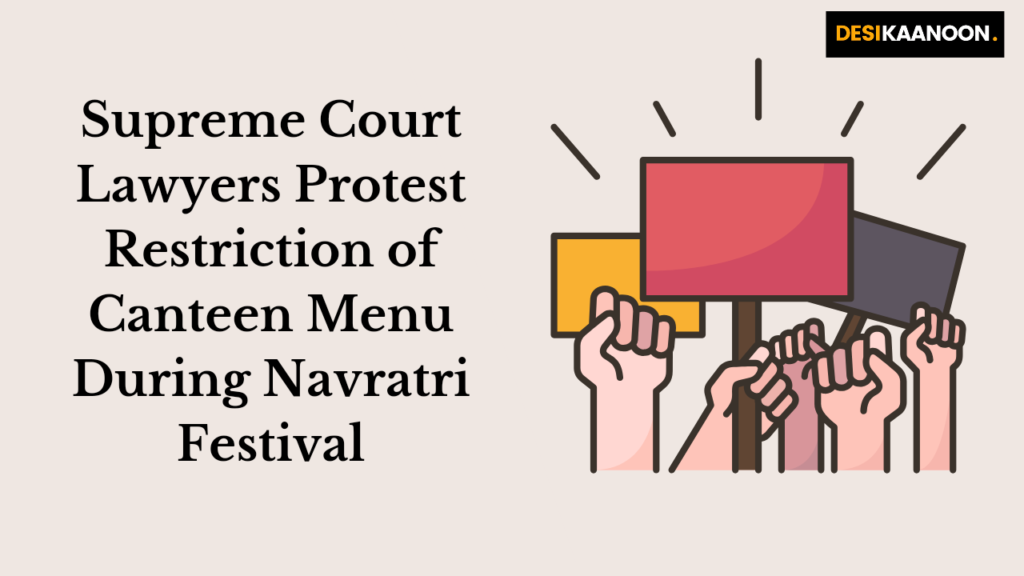Aastha Pareek
In a recent development, a segment of Supreme Court lawyers has expressed discontent over the temporary restriction of the canteen menu during the Navratri festival. The move, aimed at aligning with the sentiments of those observing the religious festival, has sparked a debate on the intersection of religious practices and public service in a professional environment.
The decision to restrict the canteen menu has not gone down well with a section of the lawyers who frequent the Supreme Court’s canteen. Some lawyers argue that the court, being a secular institution, should not impose dietary restrictions based on religious sentiments. They contend that the canteen is a public service facility catering to individuals of diverse religious backgrounds, and thus, limiting the food options based on one particular faith’s customs contradicts the secular nature of the institution.
Several lawyers took their concerns to the administration, demanding the reinstatement of a more inclusive menu. They argue that such decisions create an unnecessary imposition of one group’s religious practices on others, which, in their view, undermines the pluralistic ethos of both the Supreme Court and the Constitution.
On the other side, supporters of the decision argue that the restriction was a gesture of respect towards the religious sentiments of those observing Navratri. For many Hindus, the consumption of non-vegetarian food and ingredients like garlic and onions during this period is considered offensive. The restriction, therefore, was seen as a way to accommodate these sentiments, not as an imposition on others. Additionally, the restriction is temporary and would last only for the duration of the festival, after which the regular menu would be reinstated.
The management of the canteen also defended its decision, explaining that this practice has been followed for several years during Navratri and has generally been accepted without major objections. They emphasized that the change in the menu was limited to nine days, which, in their view, was a reasonable accommodation in light of the cultural and religious context.
The protest has reignited a broader conversation on how secular institutions should balance religious sentiments with the principles of inclusivity and non-discrimination. While India’s Constitution guarantees the right to religious freedom, it also enshrines the principle of secularism, which implies that state institutions should not favor or prioritize one religion over another.
Critics of the canteen restriction argue that secularism requires public institutions to remain neutral in matters of religion and not allow religious practices to dictate public policies or services. They fear that such accommodations, if allowed to continue, could lead to further religious influences in spaces meant to be secular and inclusive for all.
On the other hand, supporters of the restriction argue that secularism does not mean the complete exclusion of religion but rather the accommodation of diverse beliefs. They believe that temporary changes, made out of respect for specific religious practices, do not violate secular principles but rather foster an environment of mutual respect and coexistence.
As the debate unfolds, the question remains whether public institutions like the Supreme Court should adopt policies that accommodate religious practices, even temporarily, or maintain complete neutrality. While the restriction of the canteen menu during Navratri may seem like a small, temporary change, it has sparked a larger discussion about the role of religion in public spaces and the extent to which secular institutions should accommodate religious sentiments.
As of now, the Supreme Court administration has not made any formal statements regarding the protest. However, this issue may lead to a re-examination of how such matters are handled in the future, as institutions continue to navigate the delicate balance between respecting religious practices and upholding secularism in a diverse society.

